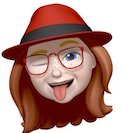There's a complex set of skills involved in effective web development - and the 'industry' is filled with experts and skilled practitioners. Here's a thumbnail sketch of the range of skills needed to work the web.
Graphics.
Graphic Design, illustrations, diagrams, buttons, adverts and banners are all part of the tapestry of online communication. Visual information is just as important a part of the web as the words, so knowing how to create, edit and manipulate images, whether photographs or drawings is a key skill. We're also increasingly publishing moving pictures and sound. The ability to manipulate video and audio will soon be just as critical.
Words.
Writing for the web means re-thinking old patterns of composition. Titles and sub-headings are more useful than ever as the average person browsing the web skims the page for what they're looking for, or a summary of the detail.
Typography.
When words are pictures. Typography has a long history, much longer than the web, but it's only recently that the web has started to offer exciting possibilities for typographers. Embedding fonts, creating web fonts and using them effectively.
Curation and Aggregation.
Chances are the information you're publishing is already out there. Maybe you don't need to write it, maybe you just need to collect and summarise it. Maybe you should test the authority and credibility of a range of sources as a service to readers.
Privacy and User centred thinking.
If you're collecting information from and about your users you have a duty of care to protect that information. Or you should. Many web sites don't think carefully enough about their users, from their users perspective.
Navigation, site structure and information architecture.
The web is old enough now that there are un-written conventions on how best to present information. Yet this is still evolving and is still too often broken. People's perceptions of ease of use vary greatly based on their own experience and expectations. There is still much teaching and learning to be done here.
Search, Index, Archive, Databases.
Google reigns as the leader of search, but there are search engines behind logins that reveal much deeper and richer information on the web. How best to index data to make it available to web users.
Accessibility.
Being able to fully access the rich resources of the web is something many of us take for granted, but it's not so easy if you can't see, or type, or point and click. Accessibility for various levels of literacy and physical ability is something we should be building in to websites from the start, not trying to retro-fit afterwards, or deciding 'it doesn't matter'. It does matter. It matters alot and it's not straightforward.
That's really just a superficial tip of the iceberg. I haven't even mentioned the actual technology platforms and protocols we rely on to get these jobs done, or the basic levels of information literacy needed just to get started.
If we compare this with print publishing, there's an australian training framework that covers everything from hole punching and binding, to manipulating high level graphics applications.
So - Web Science? Where's it at in Australia? Who's doing the serious reading, writing and teaching about all things web?
